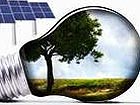| Videos | ? Latest |
|
? Feature | ? Sports | ? Your Videos |
Japan faces energy shortage after quake

Japan's earthquake has left a gaping hole in the nation's power capacity that's set to last months. Meanwhile experts say a quick bounce-back for the country's economy also looks gloomy.
A nation in turmoil....
Not only have the rolling three-hour blackouts reeked havoc on the clockwork precision of Japan's railways, about a thousand schools across Tokyo have also had to cancel classes.
Meanwhile major electronic companies have temporarily or voluntarily shut down some of their factories and offices. And some auto makers are halting production - as they're not quite sure when to reopen.
This is the first rolling power cut in the history of the giant Tokyo Electric Power Co. - or TEPCO. - the owner of the troublesome No.1 Fukushima Nuclear Plant.
The tsunami has taken a quarter of the company's total 65 gigawatts capacity, shared between nuclear and oil.
Some 15 of TEPCO's nuclear plants are now shut, and it's not clear how many will re-start or when.
As a place prone to earthquakes, Japan's economy usually bounces back quickly by swift re-construction.
But experts are not that optimistic this time, as previous earthquakes rarely put a "power-down" spell on the country.
They say Japan could possibly tap into the oil and coal plants, but at great expense. And it could also pose a threat of pushing resource prices even higher.
Even the simplest gas turbine power plant takes between one and two years to build - and coal plants generally take a lot longer.
Still, Japan was lucky to have a potential major supplier of liquefied natural gas in Australia, which is the most favorable and practical low carbon-emission alternative.
And Japan's quake and tsunami have already made their mark on local and global stock markets.
 0
0 






